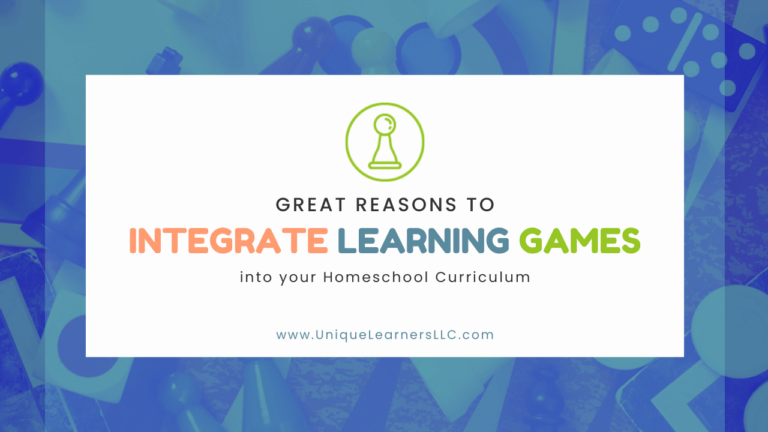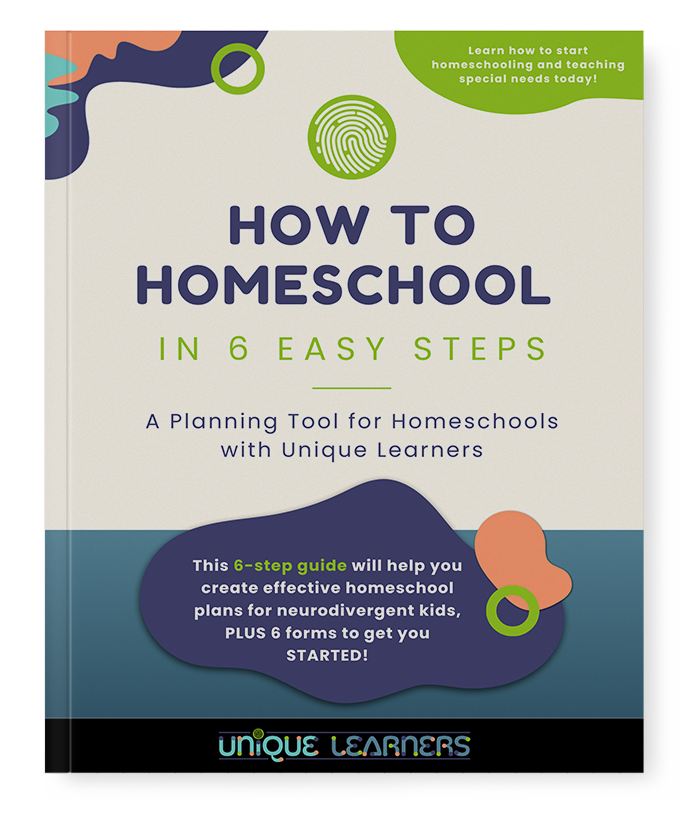As homeschooling parents, we are always looking for engaging and effective ways to help our children learn. One activity that is often overlooked but can be incredibly valuable is playing games. Games can be a powerful tool for learning in the homeschool setting. Playing games can be beneficial in all of the developmental domains. Here are some great ways to integrate learning games into your homeschool curriculum and work on some important cognitive skills!
Learning Games Help Practice and Maintain Key Academic Skills
Any type of games, whether board games, card games, multisensory activities, or digital games, require players to practice important academic skills. Games that involve reading, math, strategy, logic, and problem-solving can reinforce these skills in a fun, low-pressure way. As children play, they are building and strengthening key competencies without even realizing they are “learning.” Play reduces the stress of practicing difficult skills of phonics, spelling, decoding, syllabication, comprehension, factual knowledge, and math facts.
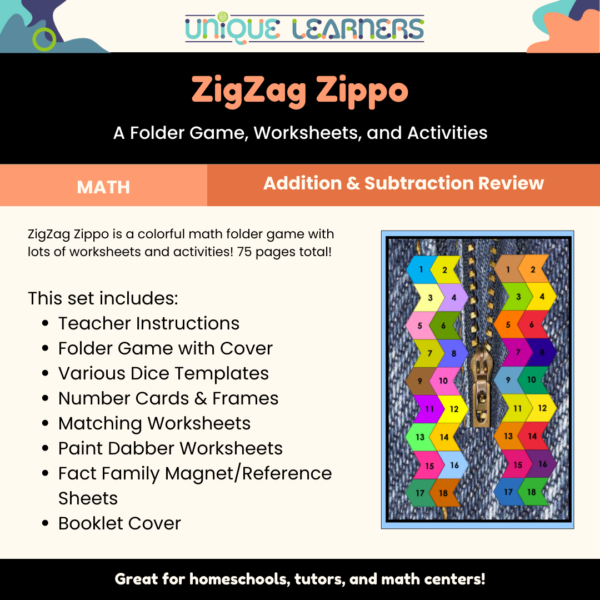
Unique Learners has games for most phonics rules, morphology rules, and math facts. If you want “real” board games that are easy to store, you will LOVE our file folder games for older students with dyslexia, autism, dyscalculia, or other learning disabilities. Our games are designed to be played in 15 minutes or less without penalty for not recalling rules or facts. Many of our games have formats loosely based on popular board games. The word and math facts are carefully selected to follow most Orton-Gillingham programs or individual rules so that kids are able to locate the patterns used in the games.
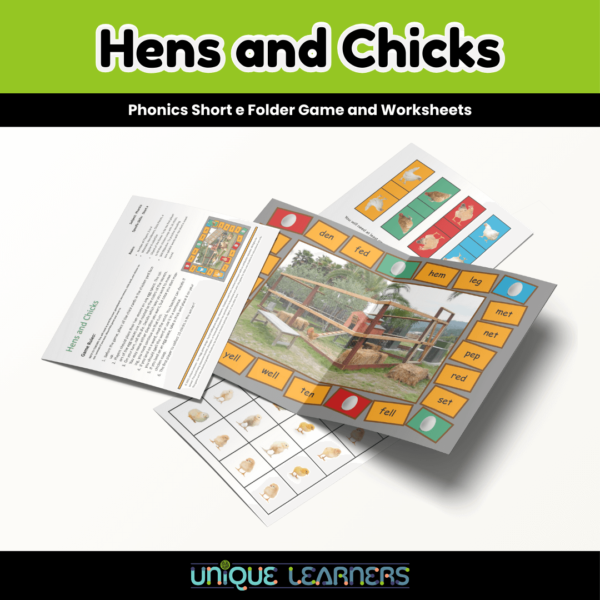
Learning Games Build Essential Cognitive Skills
When I started working in special education, the main strategies for helping kids with learning disabilities involved training visual or auditory skills. As schools evolved into the current practices in special education, the focus turned to teaching reading, writing, and math skills with inclusive practices of using the general education curriculum. Neither one of these approaches resulted in effective instruction. However, in recent years, technology has been a “game” changer!
Cognitive skills can be effectively strengthened or enhanced for any learner, including adults! The design of digital games target visual, auditory, and executive function processes utilizing the motivational components of video games.
Visual processing is different than vision therapy that strengthens the muscles surrounding the eyes. Visual processing involves giving symbols meaning, memory, and tasks closely associated with reading.
Auditory processing has been found to be the foundational issues mostly associated with dyslexia and autism. Strengthening auditory memory, sequencing, and speed can help a child more effectively use the skills taught in a systematic phonics program.
The act of playing games cultivates valuable executive function skills like focus, working memory, impulse control, and flexible thinking. Children have to pay attention to rules, remember strategies, control their impulses, and adapt to changing circumstances – all of which support their overall cognitive development.
The extensive benefits of cognitive skills training for any learner are so vital, I integrate brain training into my own students’ individual learning plans. I’m always surprised that homeschool parents prefer to spend a ton of money ordering one Homeschool curriculum after another or to hire tutors who can adequately instruct, but with little progress in math or reading for years. Cognitive skills training can help students more effectively process the specialized instruction and make steady progress in basic skills!
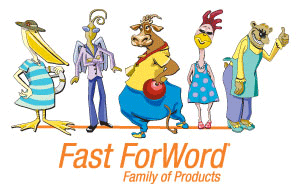
If you are interested in cognitive skills training for any of your kiddos or teens, feel free to contact us at info@uniquelearnersllc.com. Sue is a certified Fast ForWord provider for auditory processing training, as well as Interactive Metronome for integration therapy. We also provide other computer-based brain training, including BrainHQ, Lumosity, CogniFit, and others.
Fosters Creativity and Imagination
Open-ended games that encourage creativity and imaginative play can unlock your child’s inner inventor, storyteller, and problem-solver. These types of games promote divergent thinking and the ability to see things from new perspectives. Easy games, such as charades, hide and seek, or playing store can be fun for even older students. If you want lots of ideas for imagination games, click here.
Develops Social Skills
Cooperative and competitive games teach children important social-emotional skills like communication, collaboration, sportsmanship, and emotional regulation. As they play with others, they learn to take turns, resolve conflicts, and be gracious winners and losers. I have learned that kids who have difficulty with the social skills of playing board games actually need to play more games frequently with their “safe” people, like family members. Our Unique Learners games do not penalize for making mistakes, so adults can play the games with kids and anyone can win! Mom or Dad can coach ahead of time for improving the social skills of game playing. Also, the frequency of playing games helps a child who absolutely must win every time to learn that it’s ok to win sometimes and lose sometimes.
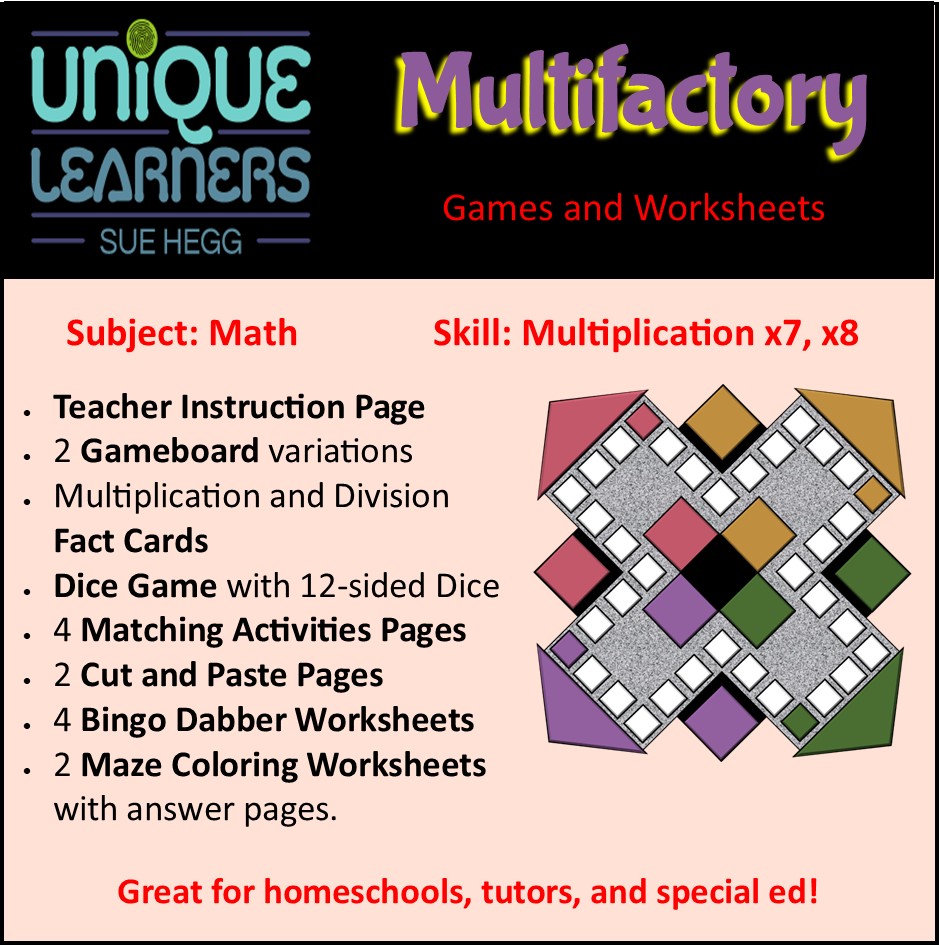
Develops Emotional Skills
Emotional regulation is difficult for many kids with or without special learning needs. A 2019 study on the effects of playing board games for older adults at risk for dementia showed that the laughter, relaxation, nonverbal communication, and stress management improved many emotional skills. Although that study involved older adults, the emotional regulation skills of kids with special needs are often similar. While more study may be necessary looking at K-12 populations, we can conclude that playing board games is beneficial for our kiddos with anxiety, communication, and stress management issues.
Develops Physical Coordination Skills
Learning Games of all types require physical coordination. Board games can improve visual motor skills and manual dexterity . Video games can improve eye-hand coordination and response time. Physical movement games can enhance moods, improve cooperation, reduce disruptive behaviors in other areas of home life. Of course movement games can help to improve balance, concentration, and activate multiple areas of the brain. Combining movement games with academic skills makes learning both fun and exponentially effective.
Learning Games Boost Motivation and Engagement
Most children naturally enjoy playing games. Incorporating learning games taps into their intrinsic motivation and makes the learning process more engaging and enjoyable. When learning feels like play, children are more likely to be attentive, persistent, and enthusiastic.
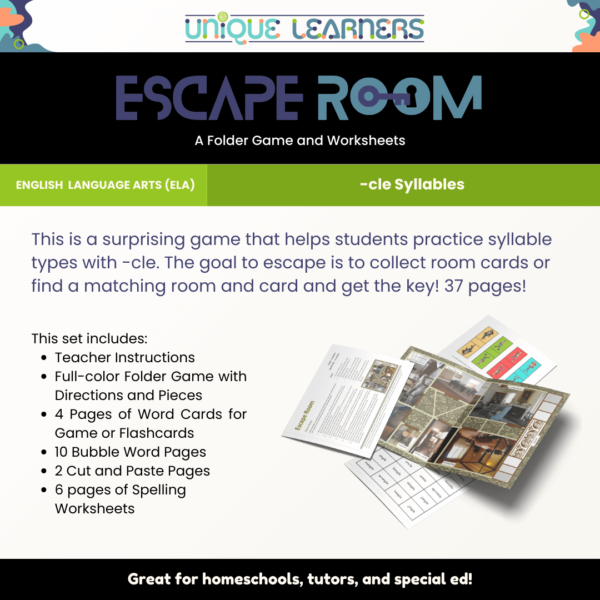
The educational benefits of playing games are numerous. By regularly incorporating games into your homeschool, you can make learning dynamic, interactive, and fun for your children. So don’t be afraid to set aside the worksheets and textbooks occasionally and bring out the game board or video game console. Your children’s brains (and your sanity) will thank you!
Resources
Nakao M. Special series on “effects of board games on health education and promotion” board games as a promising tool for health promotion: a review of recent literature. Biopsychosoc Med. 2019 Feb 19;13:5. doi: 10.1186/s13030-019-0146-3.
